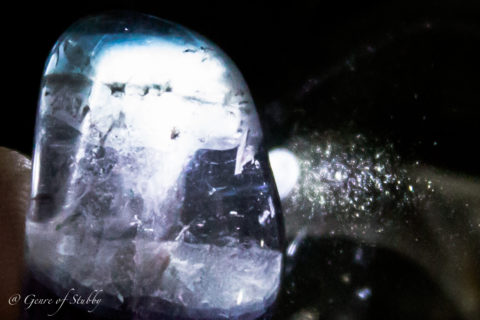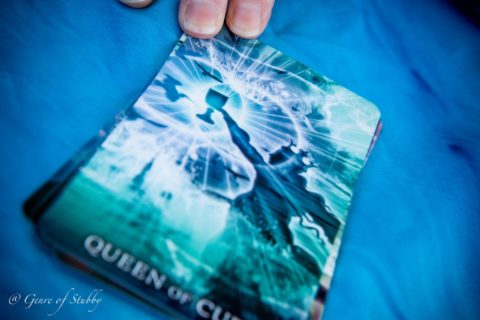So, what do we do now?
If you read last week’s post, I introduced the idea that our brains have forgotten how to recharge our energy levels, whether we are introverts or extroverts (and I confirmed that with a couple extrovert friends over the weekend, they’re not getting the recharge, either), and talked about how the human brain is neuroplastic and greedy for real estate, so we just tend to forget stuff we don’t use on the regular. Wondering where your algebra went? Yep, neuroplasticity. This is why we should be teaching critical thinking skills in school instead of rote memorization, but I am eminently disqualified for such a discussion.
Anyroad, what we are experiencing, so very many of us, is not a failure of our nervous system or our brain functionality. Our brains are working exactly as they are meant to. The problem is, the world isn’t working the way we need it to. But I think we can still find a way to reset that essential system and recharge again. I mean, it took me three days last week to recharge from choir rehearsal, instead of a few hours and a good sleep, but eventually I did recharge.
I don’t know about you, but I sure as holy heck don’t have three days to feel like crap on a cracker every time I do anything with a large group of people. So what do we do now?
I have a few ideas, and I think that it is working for me, because I did recharge a lot faster this week than last.
- Be kind to yourself, delegate everything you can, do the bare minimum, and don’t apologize. Don’t apologize. Nobody is okay right now, and the least we can do for each other is accept that nobody is okay. Give yourself permission to get extra sleep, crash on the couch with a book, or ignore the important but not urgent stuff like laundry and dishes and whatever. I love the cartoon I saw recently with the caption, “Sorry for the mess, but we’re right in the middle of no longer giving a shit.” Thank you!
- Hydrate. When in doubt, drink more water. Water is never the wrong thing to do. And be sure to feed yourself well – and not junk food or comfort food or any of the garbage habits that sap your energy and make you feel sicker. Eat clean, healthy food, plant-based if you can because it takes far less energy to digest than meat. Alcohol and caffeine should probably be off the menu as well, at least until you are feeling somewhat restored. Or forever, honestly. But you do you.
- Do as much as you can to bring calm and peace to your mind – even if you have to go sit in your car or sneak off to the library. I get it that not everybody can go into a room, shut the door, and spend 20 minutes gazing at their navel. I totally get it. So even if you stare off into space and think nothing for thirty seconds at a time between screams and crashes, do it. Shut off the TV and be alone in your head for a bit.
- Yes, shut off the goddam television set. It’s doing you no good. Passive consumption of empty programming is pretty much like feeding your brain bacon wrapped sugar donuts deep-fried in butter. It encourages rot. Use your mind for something in an active way. Get those neurons firing, Don’t let entropy win. Make something, write something, draw something. Design a t-shirt that says “Not today, Entropy. Not today.”
- Walk. Walking regulates every system in the body. Every system. Humans have been nomadic for far longer than we’ve lived in cities, and our brains require movement to stay healthy and focused. I can’t tell you how much of a difference walking every day has made for me. It is changing me in ways I never expected. According to Science (TM) even taking a longer ride in a wheelchair makes a huge difference. The movement part is only half the story; the change of scenery part is another level of stimulation. Get out in the world and do it.
- Go to church. If there are any cool old cathedral type churches in your town, go to a service. Not for the God-bothering, but for the way the sound works in those spaces. All the intricate carving breaks up sound waves in a very specific way, and creates incredible overtones – and once the overtones are above 8000Hz. they start feeding your neocortex, even if you can’t hear those super high frequencies. That doesn’t matter at all. In fact, people who are totally deaf can benefit from the vibrational part of sound healing. Frequencies over 8000Hz charge your neocortex like a battery, quite literally. The tiny hairs in the ear move back and forth 01010101010101010101, which creates electrical impulses that travel through the auditory nerve into the brain and charge it. Listening to regular commercial music won’t do it (especially anything on the radio). All the super high frequencies have been stripped to save digital space, so mp3 and m4a files, and even a lot of WAV files do not have the capacity to get enough of a charge going to make a difference. Going out and listening to live music is better than listening to so-called music on your stupid phone.
- Forest bathe. Forest bathing is so good for you that in some countries, doctors recommend a minimum of five hours per month for just baseline health. That’s like two weekends sitting, walking, hiking, biking, or just being in the woods for 2.5 hours. Or thirty minutes, ten days a month, or an hour at a time, five days. Not exactly a dire and arduous chore, is it? Maybe a little tough in the winter, but easily doable in spring, summer and autumn. Get out there.
I’d love to hear other ideas and suggestions, because I am far from all=knowing. We should all compile a list of best-practices that work for us to refer to when we are glooping into the glugh and slipping away. I am slowly learning what works for me, and I’d love to hear what works for you.





